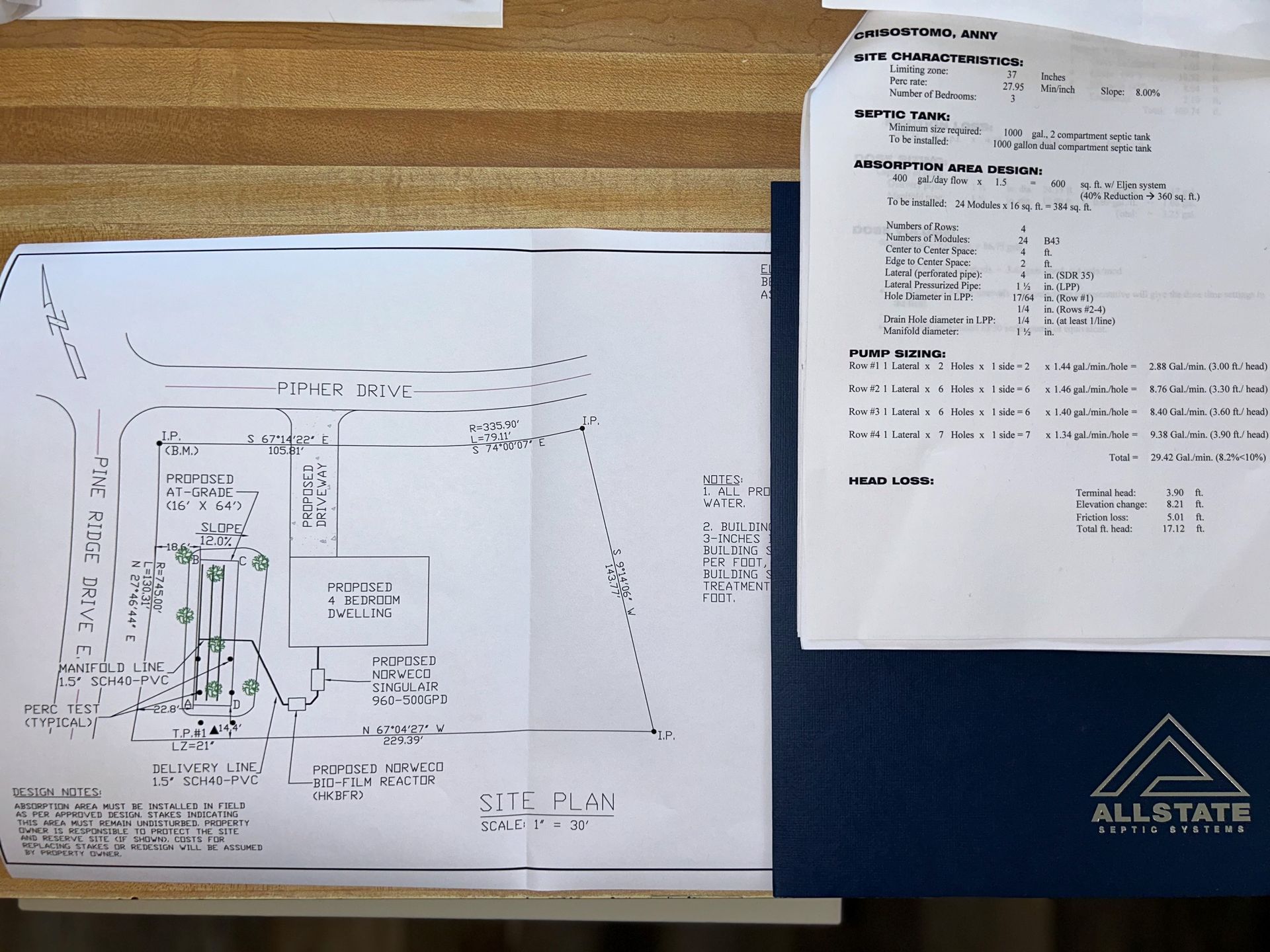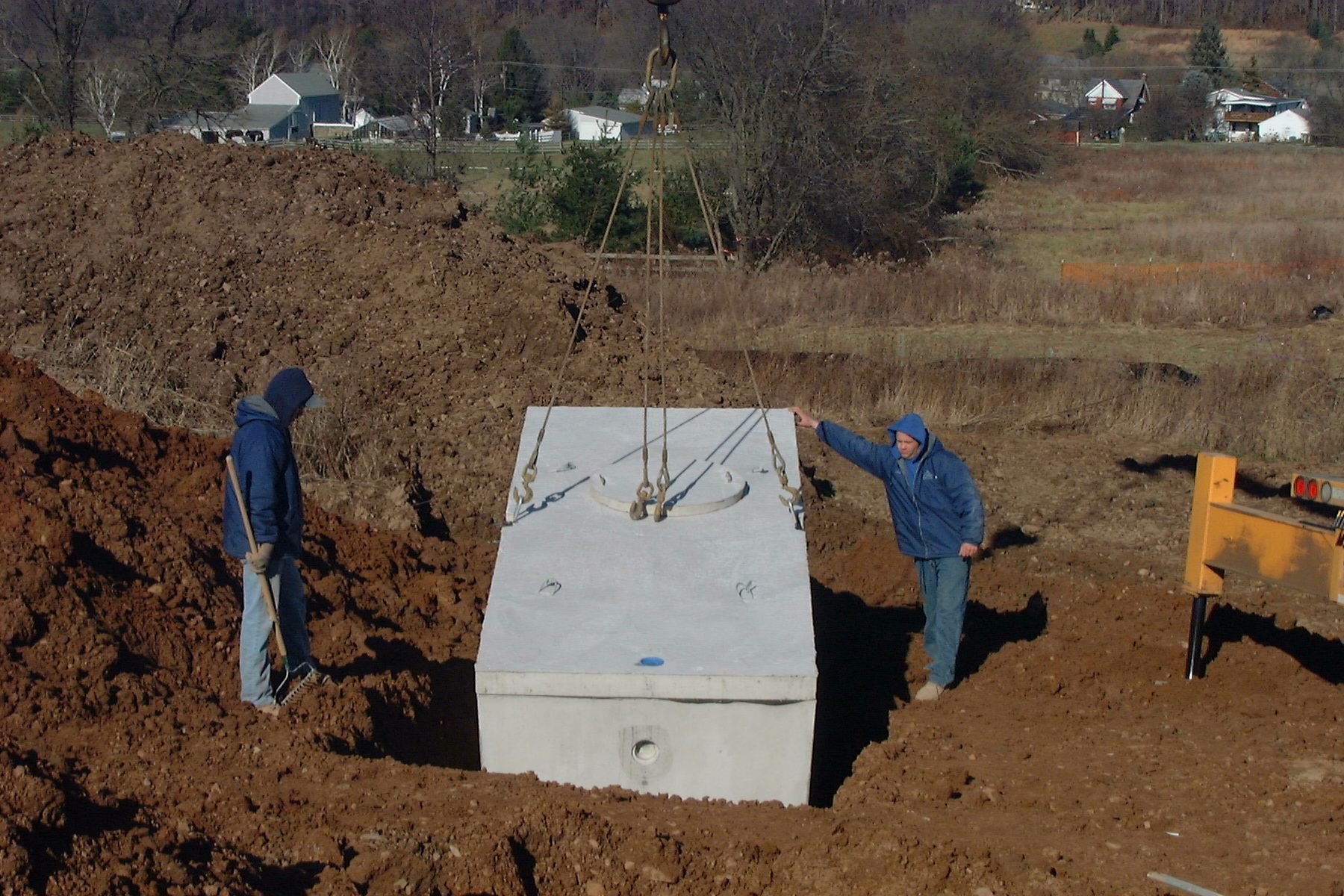FIRST STEP WE TEST!
SOIL PROBE & PERCOLATION TESTING
Allstate Septic Systems performs soil probe and percolation testing as required by regulation for site evaluation prior to obtaining an on lot sewage disposal permit. Regulations in both Pennsylvania and New Jersey require a soil probe to determine soil profile, which in turn dictates the type of system to be installed. Percolation tests are mainly used in Pennsylvania, and permeability tests are used in New Jersey. Both determine the size of the system using results and a calculation to equal square feet of absorption area required. To learn more about soil probe, percolation tests, and permeability tests, please read below.
Soil Probe – A pit excavated, utilizing a backhoe or similar equipment, to a depth of seven to ten feet below the original grade. A sewage officer, soil scientist or engineer will descend into the excavation, and analyze the soil profile, identifying seasonal water tables, rock formations, open voids, or any other limiting zone that may hinder the downward movement or renovation of the sewage effluent. The results of this test determine system type, or may eliminate a site as unsuitable.
Percolation Testing– Commonly referred to as a “perc test” this test actually extends over two days. On the first day normally six holes are dug utilizing post-hole digging equipment to a depth of twelve to thirty six inches. More holes may be required for larger systems. The holes are usually six to ten inches in diameter. Twelve inches of water are added to each hole on the first day, this is known as a “pre-soak”. On the second day fixed points are established at each hole to allow uniform measurement of water movement. Six inches of water are initially poured into each hole. At thirty minute intervals each hole is refilled to the beginning six inch level. After the third thirty minute interval the drop is measured, and enough water is added to reach the original six inch level. This process is repeated until eight readings have been obtained, or four consecutive stabilized readings have been obtained. This test lasts from a minimum of three hours to five hours. The results from this test are used to calculate the system size in square feet, or may eliminate a site as unsuitable if the percolation rate is too fast or too slow.
Permeability Test – Permeability tests are usually performed in New Jersey in lieu of a percolation test. A soil sample is obtained from the desired depth of the proposed system, usually during the soil probe. This sample is taken to a laboratory for analysis for permeability, and the results are used in a formula to determine the number of square feet of absorption area required.
*Allstate Septic Systems will utilize the results of the above testing procedures to design an on lot sewage disposal system. This design will then be submitted to the governing agency for permit issuance. (See Septic System Designs)
Next step we Design your Septic System



Finally We Install your Septic System

Our septic system installation group consists of two full time installation crews and one part time crew. Each crew is led by a supervisor trained professionally to oversee the team, understand the system being installed as required by state regulations and make certain that the municipal inspector is informed of the progress of the installation. Allstate Septic Systems leads the industry in the installation of new, alternate, and experimental technologies. You can learn more about these technologies by visiting our Alliances page. All of our complete residential septic system installations are covered by our three-year extendable Allsept® Warranty.


